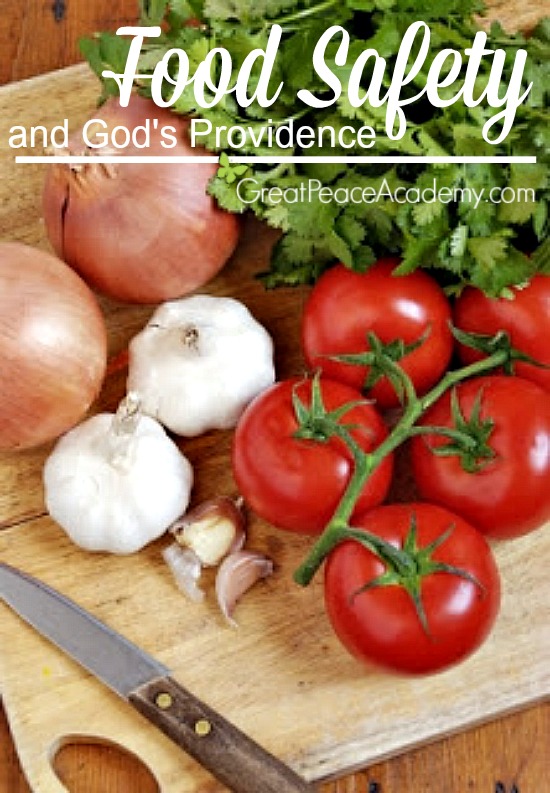Which is Safer, Plastic or Wood?
For years I struggled as a cook with the proper way to use cutting boards in the prepping of food in my kitchen. We hear so much about the dangers of bacteria such as e.coli and salmonella that it gives one pause whenever dealing with meat. As a wife and mom, I want to ensure the safety of my family. But how do I do that?

Image courtesy of Paul / FreeDigitalPhotos.net This post may contain affiliate links to 3rd party sites where porducts may be purchased. Purchases made at 3rd party sites may result in paid compensation to this blogger.
Growing up I had aunts who were quite the germophobes, in fact, they were so fearful of contamination that they washed their meat, all of it, chicken, steaks, roasts, and even ground beef, before they cooked it. This seemed so extreme to me. I mean, if you cook the meat to proper temperature surely you kill off any bacteria that may be present, right?
But then you hear about cross-contamination. Don’t use the same cutting board for meats as you do for vegetables. Well that’s a no brainer, right? Oh and I’m sure you’ve heard to use plastics for meat so that they can be sanitized afterwards. But then I saw on The Food Channel chef’s using wood cutting boards for EVERYTHING. So for years I was always confused as to what is the best cutting board to use and the reasons why.
That is, until the day I read this article in one of the Apologetics Press publications. I mean, it really made me stop and appreciate all that God has done to protect the people that He so lovingly created. Below is the article in it’s entirety.
![]()
Image courtesy of Marin / FreeDigitalPhotos.net
Used by permission from Apologetic’s Press and their series “Existence of God”
God’s Wood or Man’s Plastic?
by Dave Miller, Ph.D.
Evolutionists are confident in their conviction that their explanations demonstrate their independent, autonomous existence to the exclusion of God. They literally “jump through hoops” and engage in scientific “ventriloquism” in their quest to achieve legitimacy for their atheistic bent. However, when all relevant evidence eventually comes to light, it fits “hand in glove” with the presence of the God of the Bible.
Prior to the invention of modern plastics, what would the Creator have humans to do for suitable containers? Wood, stone, or clay, and eventually metal, pretty much exhausted the possibilities. Yet, government agencies, like the USDA and the FDA, generally have advocated the use of plastic for cutting boards and other surfaces that sustain food contact, on the grounds that the micropores and knife cuts in wood provide hidden havens for deadly bacterial organisms. As one Extension Specialist from the Department of Human Nutrition stated: “for cleanability and control of microorganisms, plastic is the better choice.”
However, the best research available on the subject suggests otherwise. Dr. Dean Cliver, a microbiologist with the Food Safety Laboratory and World Health Organization Collaborating Center for Food Virology at the University of California-Davis, disputes the oft’-repeated claim regarding the superiority of plastic over wood. His research findings, conducted over a period of several years, have consistently demonstrated the remarkable antibacterial properties of wood.
Dr. Cliver and his research associates have tested five life-threatening bacteria (Escherichia coli, Salmonella, Campylobacter jejuni, Listeria monocytogenes, and Staphylococcus aureus) on four plastic polymers and more than ten species of hardwood, including hard maple, birch, beech, black cherry, basswood, butternut, and American black walnut. Within 3 minutes of inoculating wooden boards with cultures of the food-poisoning agents, 99.9 percent of the bacteria were unrecoverable. On the other hand, none of the bacteria tested under similar conditions on plastic died. In fact, leaving microbe populations on the two surfaces overnight resulted in microbial growth on the plastic boards, while no live bacteria were recovered from wood the next morning. Interestingly, bacteria are absorbed into the wood, but evidently do not multiply, and rarely if ever come back alive. In contrast, bacteria in knife scars in plastic boards remain viable (even after a hot-water-and-soap wash) and maintain their ability to surface later and contaminate foods. Treating wood cutting boards with oils and other finishes to make them more impermeable actually retards wood’s bactericidal activity. Microbiologists remain mystified by their inability to isolate a mechanism or agent responsible for wood’s antibacterial properties.
Do these research findings bear any resemblance to Mosaic injunctions 3,500 years ago which required the destruction of pottery that had become contaminated—while wood was simply to be rinsed (Leviticus 6:28; 11:32-33; 15:12)? Dr. Cliver concluded: “I have no idea where the image of plastic’s superiority came from; but I have spent 40 years promoting food safety, and I would go with plastic if the science supported it. I don’t necessarily trust ‘nature,’ but I do trust laboratory research.” Kudos to Dr. Cliver’s honesty. What about trusting nature’s God?
REFERENCES
- Cliver, Dean O. (2002), “Plastic and Wooden Cutting Boards,” Unpublished manuscript.
- Cliver, Dean O. (2002), personal letter.
- Penner, Karen (1994), “Plastic vs. Wood Cutting Boards,” Timely Topics, Department of Human Nutrition, K-State Research and Extension.
- Raloff, Janet (1993), “Wood Wins, Plastic Trashed for Cutting Meat,” Science News, 143[6]:84-85, February 6.
- Raloff, Janet (1997), “Cutting Through the Cutting Board Brouhaha,” Science News Online, Food For Thought, July
Copyright © 2005 Apologetics Press, Inc. All rights reserved.
Used by Permission
![]()
Isn’t God amazing! He considered every aspect of life and set out to protect us. He is far wiser than man and we would do well to give Him honor and credit for all things that He created.
You May Also Enjoy







Fascinating!
I know! It’s amazing what God created and we overlook His providence far too often.